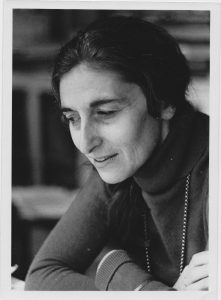Megan O’Grady in the New York Times:
 Perhaps no author has made more art of dispossession than Ruth Prawer Jhabvala. The author of a dozen novels and twice as many screenplays — she’s the only person to have won both the Booker Prize (for her eighth and best-known novel, “Heat and Dust”) and an Academy Award (twice, for best adapted screenplay) — Jhabvala was 12 when she fled Nazi Germany with her family in 1939. After the war, when her father learned the fate of the relatives left behind, he killed himself.
Perhaps no author has made more art of dispossession than Ruth Prawer Jhabvala. The author of a dozen novels and twice as many screenplays — she’s the only person to have won both the Booker Prize (for her eighth and best-known novel, “Heat and Dust”) and an Academy Award (twice, for best adapted screenplay) — Jhabvala was 12 when she fled Nazi Germany with her family in 1939. After the war, when her father learned the fate of the relatives left behind, he killed himself.
But even before her “disinheritance,” as she would later call these fundamental losses, Jhabvala was writing stories — first in German, and after they had settled in London, in English. She was studying English literature when she met Cyrus Jhabvala, an architect, and in 1951, they married and moved to Delhi. India was her home and subject until 1975, when she moved to New York’s Upper East Side, buying an apartment near her friends and creative partners, Ismail Merchant and James Ivory, as her career as a screenwriter flourished. There, as if closing a circle, she wrote fiction inspired by the European émigrés she met, people who understood what it meant to be homesick for a way of life that no longer existed. In a 1979 lecture, Jhabvala described herself as “blown about from country to country, culture to culture,” a “cuckoo forever insinuating itself into other’s nests.”
In this country, she’s best known as the screenwriting talent behind so many Merchant-Ivory films, among them the sumptuous, Oscar-winning adaptations of E. M. Forster’s “A Room With a View” and “Howards End” (a film of her own novel “The Householder” was their first collaboration).
More here.
